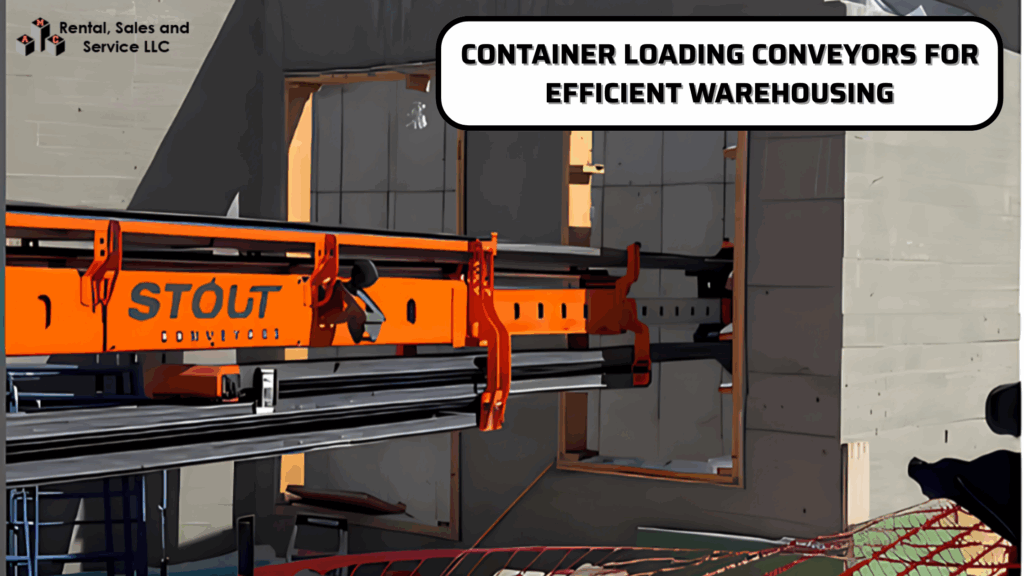Have you ever thought about how today’s warehouses load containers so quickly and safely? Modern warehousing has fast-paced environments where efficiency, safety, and accuracy are paramount to success. In the wake of several innovations, the container loading conveyor has come to play a pivotal role. These systems automate the critical task of transferring goods into and out of containers, automating a manual process that is time-consuming with efficient processes.
Their benefits also run through better injury control, lower operation costs, and consistency in their application across large amounts of handling. Integrating a conveyor for container loading enables a warehouse to meet the demands of trade worldwide, confident in dependable, scalable, and future-ready material handling solutions.
Streamline Operations with Container Loading Conveyors
Traditional container loading is labor-intensive. Workers spend many hours lifting, stacking, and moving goods, and, oftentimes, these duties can cause delays and workplace injuries. The container loading conveyor will change all of this.
Goods move automatically from the conveyors to the packing stations and into the containers as they do so with minimal handling. This results in much greater operational amounts and less strain on employees. The efficiency allows distribution centers to increase volume without necessarily increasing labor costs or reducing accuracy.
Creating Reliability through Quality Parts
Reliability of the parts plays an important role in all conveyor systems. Companies usually buy conveyor rollers to maintain the performance of their current system or upgrade the current system they have. Using quality rollers will keep the product moving through the operation, minimize downtime, and prolong the life of the conveyor itself. When warehouses use durable components, they create a steady foundation for creating sustainable operations.
The importance of this reliability increases intensely in peak season when the financial implications from delays can be substantial.
The Role of Manufacturers in Modern Conveyor Systems
The development of warehouse automation has been hugely impacted by material handling conveyor manufacturers. They develop systems allowing facilities to meet requirements specific to their operation, such as available space, load size capacity, and throughput needs.
Instead of one-size-fits-all solutions, manufacturers are designing customized conveyors that fit the needs of particular industries. Whether it is heavy-duty designs, flexible layouts, or the expertise to ensure container loading conveyors change with the needs of modern warehousing, conveyors from modern manufacturers deliver long-term value for their users.
Key Benefits of Container Loading Conveyors
- Time savings: Accelerated loading/unloading times improve logistics and productivity.
- Improved safety: Limitations on manual lifting may reduce the risk of injury.
- Consistency: Automated systems improve the consistency of how goods are loaded and moved.
- Cost saving: Reduced dependency on labor can add up to operational cost savings.
- Flexibility: Systems can be adapted to various types of goods and containers.
In Conclusion
Implementing a container loading conveyor into warehouse operations maximizes efficiency, accuracy, and safety. Automated systems do the work, eliminate mistakes, and allow higher volumes of operations, making them crucial for modern logistics. Investing in quality equipment will allow you to operate smoothly and reliably, and expand operations as the business grows.
For warehouses looking to improve the material handling side of operations and support their productivity goals, choosing the right partner is a key factor.
AMC Conveyors is providing customized solutions that meet these needs. With all their conveyor systems, you can count on reliability, innovation, and scalability to support your operation’s efficiency and readiness for the future.
FAQs
1. Can container loading conveyors accept variations in size or product type?
A: Yes, modern container loading conveyors are constructed in such a way as to accept different sizes and weights of products. Many of these systems come with adjustable widths, modular rollers, and layouts customized to the type of containers to be worked with, so that safe provisioning of varied warehouse operations is offered.
2. What do I need to be aware of when purchasing conveyor rollers for my warehouse?
A: When you buy conveyor rollers, you need to think about the type of goods you are handling as well as the load capacity. You want to ensure high quality, as downtime will reduce efficiency and smooth operation of your conveyor. Many warehouses using conveyors prefer to use suppliers that give them options for steel or PVC rollers, and ensure that all maintenance is easy and long-term.
3. How do I select reliable material handling conveyor manufacturers for my warehouse setup?
A: Choosing the right material handling conveyor manufacturers, depending on the operational lines, can be a deciding factor in getting a system that fulfills the operational needs of the client. Look for manufacturers who give customizable solutions and whose equipment is durable and fits in with the present-day warehouse system to ensure efficient operation and scalability with negligible disruptions.
4. How do I choose reliable material handling conveyor manufacturers who provide quality conveyor rollers?
A: When selecting material handling conveyor manufacturers, go for those who build durable and well-designed rollers. Buy conveyor rollers straight from the manufacturers who have experience, guarantee that the rollers meet your warehouse load requirements, with minimum maintenance issues, thereby increasing the efficiency of operations. Thus, a choice of a good supplier ensures uninterrupted working processes and may be relied upon for the long run.

